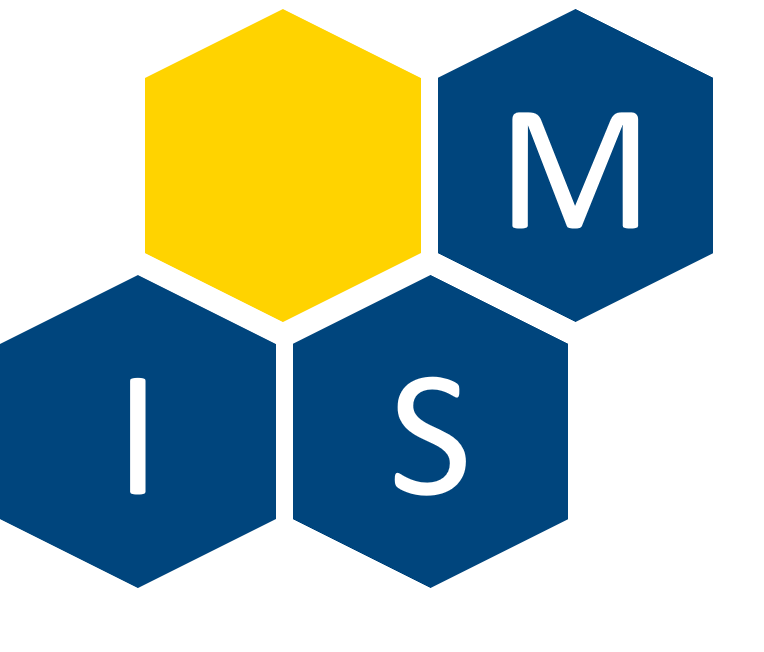Abschlussarbeitsthemen
Vielen Dank für Ihr Interesse, eine Bachelor- oder Masterarbeit am Lehrstuhl für Wirtschafts- informatik insb. Informationssystemmanagement zu schreiben. Nachfolgend finden Sie die aktuelle Liste unserer Forschungsthemen. Sofern nicht anders angegeben, sind die Themen sowohl für Bachelor- als auch Masterstudierende und die Bearbeitung kann sofort begonnen werden. Die bevorzugte Sprache ist Englisch.
Wenn Sie sich für eines der Themen interessieren, nutzen Sie bitte das Anmeldeformular am Ende der Website. Bewerben Sie sich idealerweise 8 Wochen vor Ihrem geplanten Start.
Wichtig für Bachelor-Studierende: Erfahrung im wissenschaftlichen Arbeiten im Bereich IS/MIS wird vorausgesetzt, d.h. erfolgreicher Abschluss des Moduls WAWI und/oder erfolgreiche Teilnahme an einem ISM-Seminar.
Bedingungen für eine Abschlussarbeit am ISM-Lehrstuhl: Bei einer Anfertigung einer Abschlussarbeit am Lehrstuhl für Wirtschaftsinformatik insb. Informationssystemmanagement verpflichten sich die Studierenden zu einer regelm??igen Teilnahme am Kolloquium für Abschlussarbeiten. W?hrend dieses Kolloquiums sind zwei Vortr?ge (Zwischenvortrag + Abschlussvortrag/Verteidigung) zu halten. Das Kolloquium findet ungef?hr alle drei Wochen am Dienstagabend statt.
Themen
(AI-based) ranking of the content-relatedness of linked semi-structured text content
(KI-basiertes) Ranking der inhaltlichen Verwandtschaft von verlinkten teilstrukturierten Textinhalten
Ausgangsbasis ist eine Menge von JIRA Tickets, die Themenclustern zugeordnet sind. Jedes Ticket geh?rt dabei zu genau einem Themencluster. Für ein Ticket, das noch keinem Themencluster zugeordnet ist, soll ein Ranking für die Zugeh?rigkeit zu den bestehenden Themenclustern ermittelt werden. Grundlage für das Ranking soll die inhaltliche Verwandtschaft mit bereits eindeutig zugeordneten Tickets sein. Das Ranking der Zugeh?rigkeit eines JIRA Tickets zu den Themenclustern stellt letztlich eine priorisierte Vorschlagsliste der Zuordnungsm?glichkeiten dar. Am Ende entscheidet ein Spezialist über die korrekte Zuordnung eines Tickets zu einem Themencluster. Die JIRA Tickets enthalten einen Titel, eine Beschreibung, diverse Metadaten und sind untereinander und in manchen F?llen mit Confluence-Inhalten verlinkt – z.B. mit Spezifikationen.
Die Arbeit wird in Zusammenarbeit mit mgm technology partners bearbeitet.
mgm technology partners ist ein internationales Softwareunternehmen und auf die Entwicklung von individuellen Gesch?ftsanwendungen spezialisiert. Für die Umsetzung setzt mgm auf die eigene Low-Code-Plattform A12 sowie model-driven Software Engineering. An weltweit 19 Standorten arbeiten über 1.000 Kolleg:innen für mgm.
Methodik: Praxisarbeit, Design Science
Betreuer: Prof. Dr. Daniel Beimborn
English version
The starting point is a set of JIRA tickets that are assigned to topic clusters. Each ticket belongs to exactly one topic cluster. For a ticket that is not yet assigned to a topic cluster, a ranking is to be determined for the affiliation to the existing topic clusters. The basis for the ranking should be the relationship in terms of content with tickets that have already been clearly assigned. The ranking of the affiliation of a JIRA ticket to the topic clusters ultimately represents a prioritised suggestion list of possible assignments. In the end, a specialist decides on the correct assignment of a ticket to a topic cluster. The JIRA tickets contain a title, a description, various metadata and are linked to each other and in some cases to Confluence content - e.g. specifications.
This thesis will be conducted in cooperation with mgm technology partners.
mgm technology partners is an international software company specialized in the development of individual business applications. For implementation, mgm relies on its own low-code platform A12 and model-driven software engineering.More than 1,000 colleagues work for mgm at 19 locations worldwide.
Strong German language competences are required (min. C1).
Approach: Design Science
Supervisor: Prof. Dr. Daniel Beimborn
Digital Entrepreneurship - Understanding the Role of Digital Technologies in Entrepreneurship
Digital technologies not only transform business strategies, models, and processes in established firms (Bharadwaj et al., 2013) but also impact the field of entrepreneurship and innovation (Nambisan et al., 2019). However, so far we do not really understand how exactly these changes look like. The aim of this study is to investigate the characteristics of digital artifacts and how they influence entrepreneurial processes, contexts and outcomes.
Method: Various research methods are possible (e.g., case study research, survey research, literature review,...)
Language: preferably english
Literature for getting started:
- von Briel, F., Davidsson, P., and Recker, J. 2018. “Digital Technologies as External Enablers of New Venture Creation in the IT Hardware Sector,” Entrepreneurship Theory and Practice (42:1), pp. 47-69.
- von Briel, F., Recker, J., and Davidsson, P. 2018. “Not all digital venture ideas are created equal: Implications for venture creation processes,” The Journal of Strategic Information Systems (27:4), pp. 278-295.
- Steininger, D. M., Kathryn Brohman, M., and Block, J. H. 2022. “Editorial: Digital Entrepreneurship: What is New if Anything?” Business & Information Systems Engineering (64:1), pp. 1-14.
Supervisor: Ferdinand Mittermeier
Response Rates in Empirical Organizational IS Research – Conducting a Meta-Analysis of Success Factors of Survey Design
Achieving high response rates in survey-based empirical studies is a challenging endeavor. Managers have little time and receive more questionnaires, which reduces their willingness to participate in surveys. In turn, for researchers, it is mission-critical to design survey processes in a way that the study attracts participation of as many managers as possible.
Aim of this master’s thesis is to review existing empirical studies in the Information Systems discipline which did survey-based studies at the organizational level (e.g., outsourcing management, IT business value, IT change & transformation, organizational adoption of IT/IS). A meta-analysis shall compare the studies with regard to their design (which companies, which manager roles, which “incentives”, which countries etc.) and try to identify factors that lead to higher vs. lower response rates.
An example for a comparable study of another research discipline can be found in (Hiebl/Richter 2018).
Method: literature review, meta-analysis
Language of master’s thesis: English
Literature for getting started:
- Hiebl, M.R., Richter, J.F. (2018): Response Rates in Management Accounting Survey Research. Journal of Management Accounting Research (30:2), pp. 59-79.
Supervisor: Prof. Dr. Daniel Beimborn
